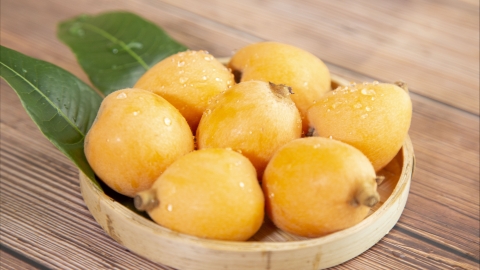Can a six-month-old baby eat loquat?
Generally speaking, six-month-old babies can consume loquat in moderation, but attention should be paid to safety and the method of consumption. Detailed explanations are as follows:

At six months old, babies usually begin to receive complementary foods and it's time to introduce a variety of foods. Loquat is a nutrient-rich fruit containing vitamins, minerals, and fiber, and moderate consumption is beneficial to a baby's health. However, the principles of introducing complementary foods should be followed—starting with small amounts of single ingredients and gradually observing the baby's adaptation. Loquat seeds may cause a choking hazard and must be completely removed. The skin is relatively tough, so it is recommended to peel it before feeding. Since six-month-old babies have weak chewing and swallowing abilities, loquat should be cut into small pieces or mashed into a puree to avoid coughing or choking.
Although loquat is not a highly allergenic food, some babies may be allergic to it. When feeding loquat for the first time, only a small amount should be given, and close attention should be paid to whether any allergic reactions occur, such as skin redness, itching, rapid breathing, vomiting, diarrhea, and other symptoms. If allergic reactions occur, feeding should be stopped immediately and medical advice should be sought. Additionally, moderate consumption should be emphasized, as loquat is cooling in nature and excessive consumption may lead to gastrointestinal discomfort in babies, such as abdominal pain and diarrhea.
Ripe loquats have better taste and are easier to digest. Choose loquats with golden yellow skin, plump fruit, and no obvious damage or rot. Consuming loquat together with milk may form organic acids, causing milk to denature and precipitate, which is not conducive to nutrient absorption. It is recommended to feed them separately. To ensure balanced nutrition, loquat can be combined with other foods such as rice cereal and vegetable puree.




